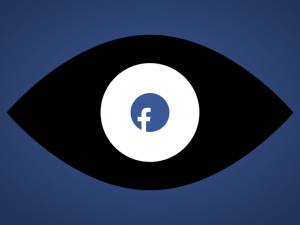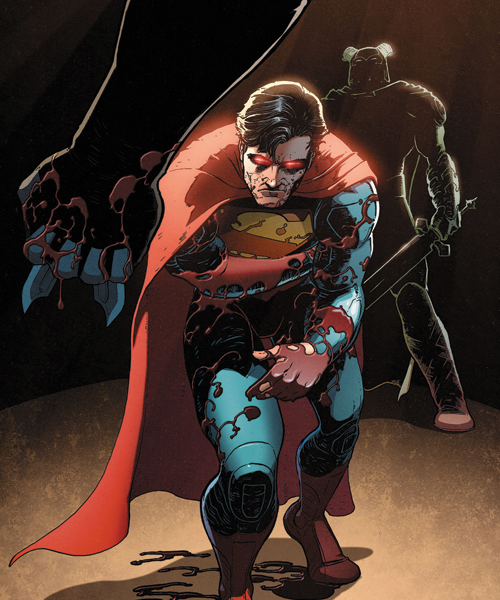Last week, Facebook announced it’s purchase of virtual reality startup Oculus VR for $2 billion, and as is the usual, much of the Internet erupted in panic. While I may not be the biggest fan of Facebook, I do feel that this acquisition will ultimately be a good thing for Oculus, VR as a mainstream product, and gaming as a whole.
 I won’t front, when I first read that Oculus was bought by Facebook, my first reaction was a very loud, very angry “bullshit!” that scared the shit out of my girlfriend and cat. After thinking about it more and more in the days following however, it’s probably not nearly as bad a scenario as the Internet thinks it is.
I won’t front, when I first read that Oculus was bought by Facebook, my first reaction was a very loud, very angry “bullshit!” that scared the shit out of my girlfriend and cat. After thinking about it more and more in the days following however, it’s probably not nearly as bad a scenario as the Internet thinks it is.
The outrage was to be expected though. People don’t take very kindly to Facebook, and many go to great lengths to avoid it altogether. As with all massive companies, they do some really skeezey stuff, especially when it comes to your personal information. Truth be told, though, the internet would have reacted much in the same way if it were bought by any major company, it just happened to be the company that people seem to hate the most.
Oculus VR was never going to be able to maintain its independence forever. Sure, there are a ton of loyal followers and true believers in that hard sought after indomitable indie spirit that wanted to see Oculus grow into something huge all on it’s own, but those people are fucking delusional. Anyone who knew how this industry worked could look at that initial Kickstarter campaign and know that for Oculus to really succeed, to become a mainstream product and household name, they’d need much more money than any crowdfunding campaign or venture capitalist backers can give them, they’d need to get bought by someone huge.
The thing about recent events is that no one expected that someone to be Facebook. Granted, there are probably only a good five or six companies that could afford to drop 2 million bones on a crazy VR venture, and the alternatives could have been much worse.
 I mean, really, imagine if Apple, Google or Microsoft were the ones to buy the company, as they’re some of the only ones who could afford to drop that coin. The technology would probably be thrown into some dark corner of their R&D departments and either be incorporated into some other product years down the line or just be shelved.
I mean, really, imagine if Apple, Google or Microsoft were the ones to buy the company, as they’re some of the only ones who could afford to drop that coin. The technology would probably be thrown into some dark corner of their R&D departments and either be incorporated into some other product years down the line or just be shelved.
When you really sit down and think about it, something like Facebook or Amazon makes sense in the grand scheme of things. They’ve got a killer commerce system in place, and more importantly, they know how to reach people. I’d bet good money that when a consumer version of the Rift finally sees a release, Facebook will make damn sure you know about it whenever you use the service.
Prior the buyout, Oculus was a VC-funded company, and as a result, it was walking a very fine tightrope. All they would have to do is botch one product launch, one massive piece of bad press about VR addiction Today Show, one VC investor demanding a quicker return, and the company could go under real quick.
Imagine if you will, the grim and probably inevitable news story somewhere down the line wherein someone dies in one of the headsets. That person’s family will undoubtedly lawyer up and sue the crap out of whoever made the unit (be it Oculus, Sony, or whoever else gets into the game.). A small Oculus VR with a paltry $100 million in VC money can’t handle that, but with someone like Facebook behind them, now they can.
The purchase also adds a layer of credibility to the legitimacy when presenting it to a mainstream audience. It can be shown as a real piece of innovative technology, and not some fringe piece of novelty gear reserved for arcades in the late 90’s and people way into Lawnmower Man, and with the stigma removed, the audience for the product broadens.
The Oculus Rift in particular is a piece of technology that, as cliche as it sounds, really needs to be seen firsthand to be believed. With that Facebook money, that technology can get into the hands and eyes of a hell of a lot more people than it ever could have before, and can really help to make or break it.
There’s still a chance that Facebook can really mess things up if they decide to do something crazy, but what it ultimately comes down to is this: Facebook isn’t changing Oculus’ gameplan. If anything, it’s accelerating the execution and getting it out there.
Facebook is providing this once plucky independent startup with stability, and Oculus will still focus on gaming and interactive experiences, and Facebook is interested in the medium’s potential as a communication platform. Honestly, the possibilities are nearly endless, and even games pioneer and Oculus VR CTO John Carmack acknowledges that, tweeting that he has “a deep respect for the technical scale that FB operates at. The cyberspace that we want for VR will be at this scale.”
All of this is coming from a true supporter of this whole push to VR. I own an original Oculus Rift DK1 developer kit. I preordered the DK2 the second I was able to and eagerly await it’s arrival in July. I’ve seen firsthand what Oculus is capable of, and I’ve sank over $500 into it because I believe in the technology and the future of VR.
I’ve got a much bigger stake in it than most people complaining on Twitter and (of all places) Facebook, and I’m incredibly optimistic.So just sit down, take a deep breath, maybe get a cup of tea, and calm the fuck down. Everything’s (probably) going to be just fine.


